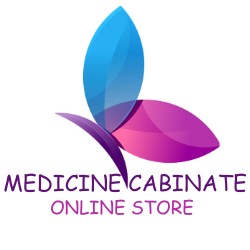Blog
Harms Excessive Alcohol Can Cause to the Body
Alcohol
Alcohol, like any other drug, can be harmful. In fact, alcohol is the most widely used psychoactive drug in Australia1 and one of the most harmful. Alcohol causes more chronic diseases and is linked to more deaths than any illicit drug.1,2
Manage your alcohol consumption
While there is no healthy level of drinking, the National Health and Medical Research Council (NHMRC) recommends that if you do drink:
- to reduce the risk of harm from alcohol-related disease or injury for healthy men and women, drink no more than 10 standard drinks per week and no more than 4 standard drinks on any one day
- anyone under 18 should not drink alcohol to reduce the risk of injury and harm to the developing brain
- women who are pregnant or breastfeeding should not drink alcohol to prevent harm to their baby.3
Alcohol guidelines
READ MORE
Additionally, not drinking is the safest option if:
- you’re driving4-7 or operating other heavy machinery
- swimming or engaging in water sports
- supervising children or young people.
For anyone who does drink alcohol, there are several ways you can reduce harm.

Tips for minimising alcohol harm
- Drink water or other non-alcohol beverages between alcoholic drinks.
- Avoid drinking in rounds with friends, as you may end up drinking more than planned.
- Order smaller serves of beer, cider and spirits, rather than pints or double serves.
- Don’t let others top up your glass if you’re sharing a bottle of wine as you may lose track of how many drinks you’ve had.
- Avoid high-alcohol content beverages, such as cocktails or spirits.
- Eat some food before and while drinking, to slow your drinking pace and slow the absorption of alcohol.
- Occupy yourself while drinking to reduce the amount you’re consuming; play pool, sing karaoke, dance, talk to friends.
Avoid combining alcohol with other drugs, including pharmaceutical and illicit drugs
Alcohol is a depressant drug. Consuming alcohol with other depressant drugs such as benzodiazepines, GHB, or opioids can increase the risk of overdose and cause loss of consciousness, nausea and vomiting.8
Combining alcohol with stimulants such as cocaine, amphetamines or MDMA can also be dangerous, as both alcohol and stimulants can cause dehydration. Additionally, some stimulants can mask the effects of alcohol, leading people to drink more.9
Don’t leave drinks unattended
Drink spiking occurs when a person deliberately adds alcohol or another drug to a drink without the knowledge of the person drinking it. Alcohol is the most common substance used to spike someone’s drink – by adding alcohol to a non-alcoholic drink or making an already alcoholic drink stronger.10
To reduce the risk of drink spiking:
- avoid sharing drinks
- buy or pour your own drinks
- don’t accept drinks from strangers unless you’re at the bar and see it being poured
- don’t leave your drink unattended
- keep an eye on your friends and their drinks.

